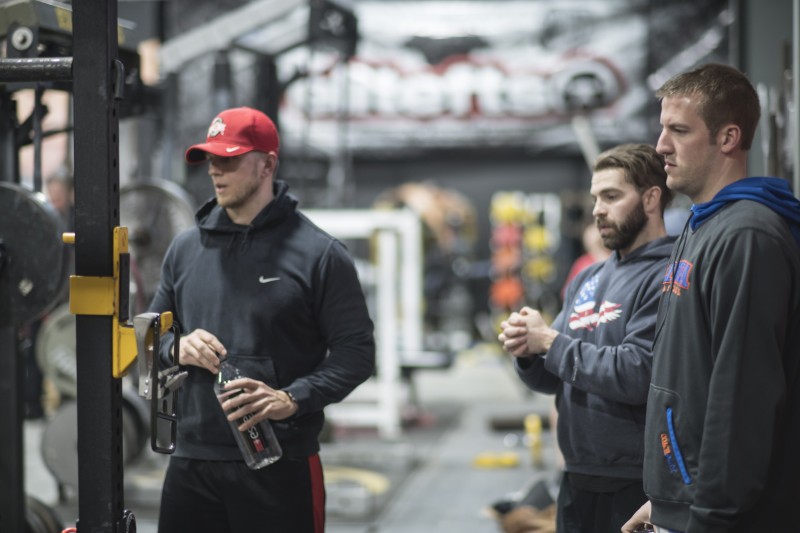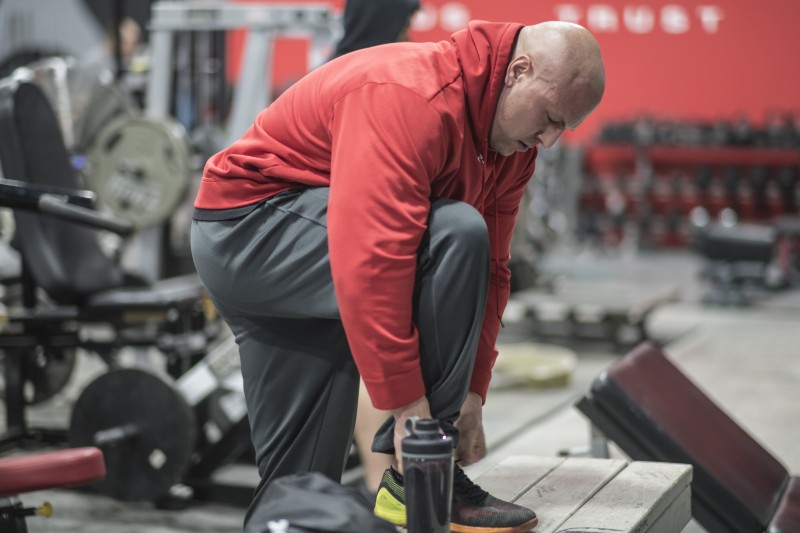
A number of years ago I wrote about what it takes to build a better strength and conditioning coach, and recently I received a request from a young strength and conditioning coach about what I expect from someone working alongside me. So after re-reading some of my previous work and reading the greats articles of Coach G, I thought it was time to update my thoughts and share them with the readers of elitefts. First things first, a caveat: I am not a sports scientist. I am a strength and conditioning coach and this is just one man’s opinion.
There was a wonderful book released a number of years ago entitled All I Need to Know I Learned in Kindergarten by Robert Fulghum. It is a really wonderful read and takes me back to what I learned at teacher training college: organization and communication. These two skills are essential for a strength and conditioning coach to get the job done. Add a fair helping of empathy and humility combined with integrity and everything else can be learned along the way. No matter what else the person has, if they cannot communicate, empathize, and organize then every other qualification they have is useless.
RELATED: 6 Steps to Landing An Internship
Personally, I do not think you need a degree to do this job. It helps when things are not going right to have something to fall back on for rationalization, but it is not the be all end all or the first thing I would look at if employing someone. What it does show is that you have the ability to stick at something for a period of time, work through problems and find solutions, stick to deadlines, research what you need to find out, work with others, and achieve goals along the way.
I know of an excellent coach who has continually been discriminated against because he does not have formal tertiary qualifications, but he has studied his entire life, attended seminars, and done internships with Poliquin, Chek, Siff and Ian King. Conversely, I have interviewed graduates who cannot tell me the teaching points for a squat or who do not actually train themselves. This coach is passionate about what he does and the way he talks about it, and we all know what Dave Tate says about passion. To paraphrase the great line from Shawshank Redemption, get busy living or get busy dying. He is also a lifetime learner, which is a massively important quality to have in this industry of ours.
When I next interview someone for any position that I have an opening for, I am going to plant a test: I am going to leave some rubbish lying in the weight room in open view and see what each candidate does. I was once told by a former member of the New Zealand military that there are three types of people: those who walk past rubbish and never see it, those who see rubbish but do nothing about it, and those who see rubbish, recognize it for what it is, and pick it up to dispose of it appropriately. So we shall see if the interview is worth continuing. I remember seeing Richard Branson do something similar when he was disguised as a cab driver picking up potential employees, so he could hear what sort of talk they are about and how they treat people. It was remarkable to see the results.
My former head coach Alan Solomons said that successful people make their bed every day, and after hearing the wonderful speech at the University of Texas by Admiral William H. McRaven, I have to include this as one of my number one requirements and have potential recruits listen to this speech. It is inspiring, insightful and very moving.
What do I want to see when I look at a resume?
- Working towards or currently holding the CSCS, ASCA, UKSCA, or similar as a professional qualification
- The RSCC award from the NSCA
- A recognized national weightlifting federation coaching qualification
- A powerlifting coach's course qualification
- A training history and even a competition or two; you do not have to be a world-class athlete to know how to train and compete in powerlifting, Olympic weightlifting, or strongman
- Time under the bar (Dave Tate)
What do you read on a regular basis? To highlight a few areas and examples:
- Websites and Podcasts: Strength and Conditioning, elitefts, Getstrength, T-Nation, Rugby Renegade, Rugby Strength Coach, Pacey Performance, NSCA
- Books: Game Changer, Supertraining, The Encyclopedia of Weightlifting, Science and Practice of Strength Training, Russian Training Manuals
- Authors: Brooks Kubik, Bill Starr, Jim Smitz, Louie Simmons, Dave Tate, Lyn Jones, Bud Jefrries
I also like to see a copy of the candidate's programs and then I will have them work with a small group of players to see how they communicate and organize a group in a practical session. Who has the candidate trained previously? I will check with these people and ask if they would have this person train them again, why they have moved on, and make sure the resume has no sins of omission or commission. It is a very small industry with far fewer than six degrees of separation, so do not just say that you worked at Leicester Tigers when you were the assistant academy strength and conditioning coach. Be specific and honest about what you did. What is the candidate's personal philosophy of strength and conditioning? What do they stand for? As someone once said, “If you do not stand for something you are most likely to fall for anything.”
My advice to young coaches is if you do not know, say so. Do not try to fudge. Go and look it up or ask someone who does know and can explain it to you. If you make a mistake, fess up to it, learn from it, and do not make the same mistake again. If you say you are going to do something, make sure you do it. No empty promises. Always tell the truth. No talking behind backs; if you have a problem with someone, talk face-to-face. As an old saying goes, “Always in the belly, never in the back.” Always answer emails promptly, even if it is just a few words in acknowledgment with a follow-up answer more fully when you get time. Use the spellcheck. Thank people and say please. If you open something, close it. If you take or use something, put it back. Keep your gym clean even if you did not mess it up. Respect is earned. Be yourself.
If I were working with you, I would expect to see you in the gym training before or after we finish with the players. Our days always start and finish long before the players actually arrive and depart. I would give you a paper or some other reading task or get you to research an area of training and then talk about it together or as a staff so we can educate each other and grow together. Be punctual for all sessions and meetings. Remember that Lombardi time is still relevant today (five minutes early is already 10 minutes late). I want you to be proactive and let me know what type of continued professional development you would benefit from. Work on your weaknesses but remember that it is still very important to build on your strengths.
Keep a notebook and pen with you at all times so that if you see something or hear something you can make a note of it to ask and discuss it at the end of each day while it is still fresh in your mind. Always ask questions and keep your mind open to the possibilities that the answers may generate. Everyone you meet can teach you something. Show me that you are a team player and not some kid that has a sense of self-entitlement. Be a part of something bigger than just yourself. Have confidence but never arrogance. Humility is a great quality to foster.
LISTEN: The Australian Strength and Conditioning Association Podcast with Ashley Jones
Bring the passion and joy every day, since it is an honor and a privilege to work with the people we work with each and every day. Try to be better each and every day. Be happy doing the job that you are given to do; some may not be as nice as others, but you must learn to serve in order to lead. My first job in this industry was cleaning toilets and the filters in the spa pool, but I tried to do that better than anyone else before me.
A great friend and colleague Chris Tombs offered me these insights as well, reminding me of a great perspective from Fergus Connolly: hard work, honesty, and humility. In essence, any intern with those traits will have a thirst to learn, develop, and be a team player. We both know that knowledge should be a given; it's personal leadership skills and the three H's that can contribute massively to any environment (thanks Chris).
These thoughts and ideas are in no ranked order but they would be the areas I consider when short-listing and then finalizing. Obviously, my own personal biases come through strongly in this listing, but as said at the commencement, this is just one man’s opinion. In closing, JJ Watt is credited with this great quote that sums up what we all should stand for: “Success is never permanent. It is on a mortgage and payment is due every day.”













1. Early is on time, on time is late.
2. Treat every day like a job interview, everyone knows everyone in this industry.
3. The more you treat an athlete like a professional the more they will act like it.
To add to the phrase I learned it;
Early is on time, on time is late and late is forgotten.